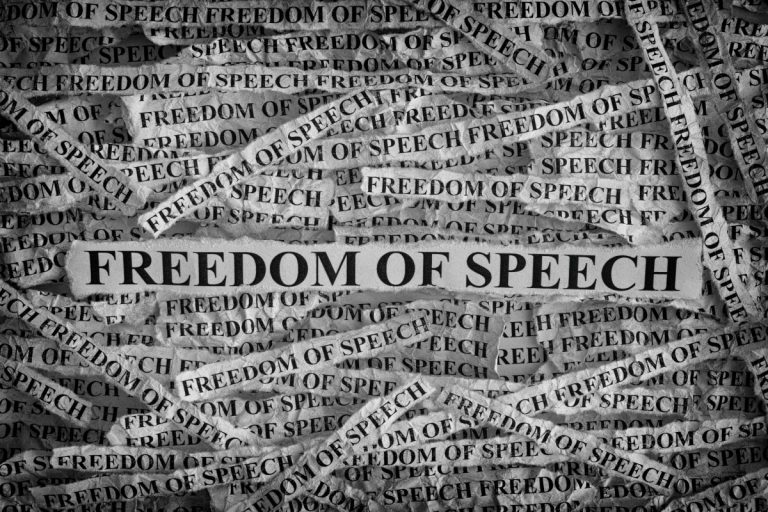
For months, debate has raged on college campuses in the United States over the right to freedom of speech, what free speech really means and whether ‘hate speech’ should be protected.
In February, left-wing students violently rioted during Milo Yiannopoulos’ appearance at UC Berkeley. Before his appearance, students called for him to be “no-platformed”, but the university ignored the request.
Liberals advocate no-platforming under the reasoning that some views spread hate and therefore these individuals should not be given a platform to have their voices heard.
Although no-platforming is clearly an infringement upon free speech, a study shows 58 percent of students value being part of a tolerant culture rather than having complete free speech. An additional 48 percent of students believe that hate speech, including racist or intolerant language, should not be protected by the First Amendment.
The debate over what is protected as free speech on college campuses has reached a boiling point. #MetroFocus https://t.co/ClCyOupXJk
— THIRTEEN (@ThirteenWNET) October 29, 2017
UC Berkeley graduate Eva Susana told Study International: “Hate speech elicits violence and is a threat to public safety. Other democratic first-world nations have taken a step to make sure their citizens feel safe at home, and this has not opened the gates for restricting other rights.”
However, conservative groups have rebutted this, saying that while hate speech may offend people, violence is even more intolerant than hateful language.
University of California – Young Americans for Freedom vice-president Kevin Martinez said: “The First Amendment was created to protect so-called hate speech. I believe hate speech does not exist, and the only kind of speech that should not be protected are threats and phrases that could cause riots that would thereby hurt other people.”
https://twitter.com/LibertyAlerts/status/925383939828736001
Martinez worries that if hate speech is restricted on campus, this could open the door to more extreme versions of censorship in the future. What would happen should a liberal extremist come into power? Could it be the start of a 1984-style thought-crime culture?
But Susana argues: “Censorship is something to be wary of, but for a nation whose democracy has created powers of checks and balances, that should be the least of their concerns.
“People should instead focus on the safety of their neighbours; the well-being of their fellow classmates, colleagues and community members should be first priority.”
Not only do members of the community need to be considered in the free speech on campuses debate, but it must also be considered how international students may be affected by censorship.
“Lily Tang came to speak at University of California, Santa Barbara (UCSB) earlier this year; she was an immigrant from Communist China who came to study in the US on a visa and was amazed at the exchange of ideas in such a forgiving nation. Her beliefs weren’t shut down, she felt free,” Martinez explained.
Martinez worries that if free speech is not upheld on college campuses, the US will be failing to act as an example to the rest of the world.
Liked this? Then you’ll love…
Free speech shouldn’t be free, say 58pc of college students
The University of Wisconsin ‘protects’ free speech – by limiting free speech







